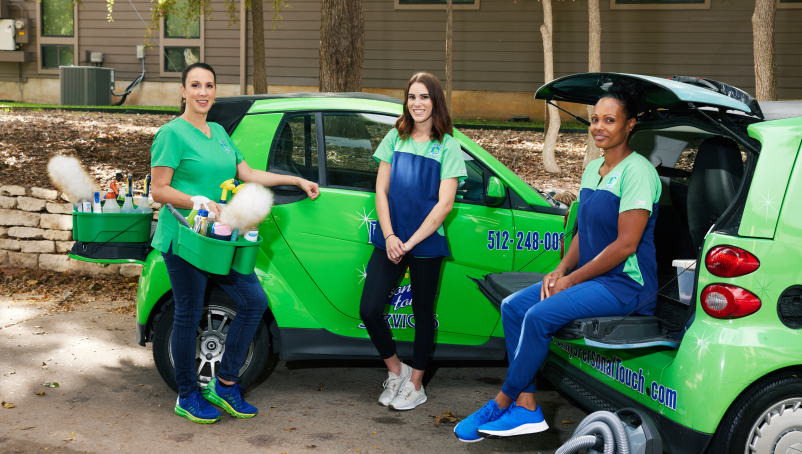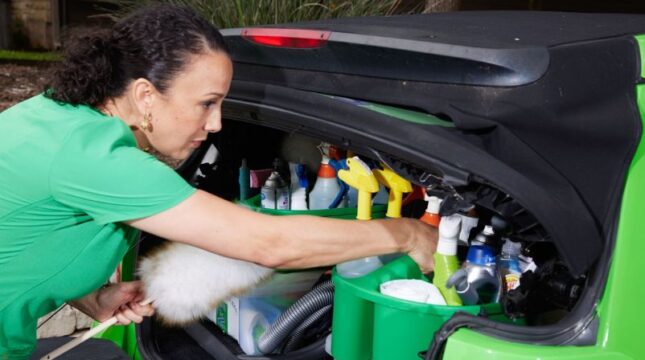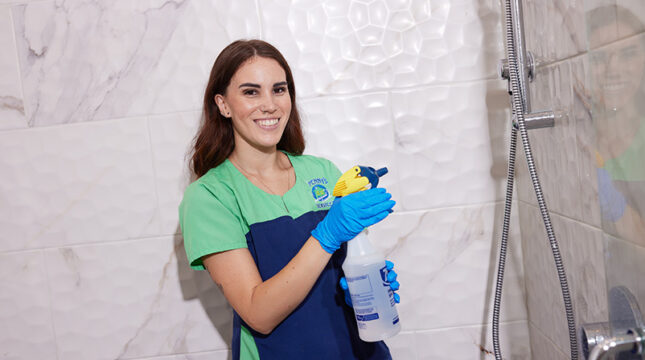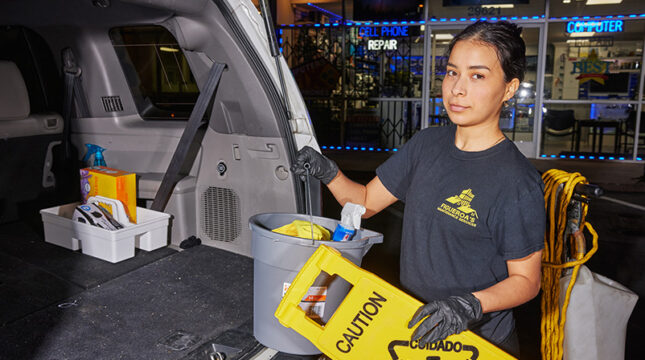How to start a Texas cleaning business in 5 steps
1. Register your cleaning business with the state
In Texas, there’s no specific state license or permit required to start a janitorial or cleaning business. However, there may be some specific requirements for your city or the services you offer.
To register a cleaning business in the Lone Star State, you must:
Small businesses often opt for sole proprietorship due to its simplicity — and if you’re launching your business in Texas, there’s no need to register with the state.
2. File an assumed business name
If you plan to operate your cleaning business under a name other than your legal name, you may need to file an Assumed Name Certificate, also known as a “Doing Business As” (DBA) certificate. The requirement for a DBA depends on your business structure.
For precise requirements, consult your local governing agency.
3. Get an Employer Identification Number (EIN)
You need an EIN for taxes, hiring employees, securing business credit and opening a dedicated business bank account.
Getting it is easy. Visit the IRS website and follow the instructions. This is a free service offered by the Internal Revenue Service, and the process is very quick.
4. Obtain a city or county business license
Though no state permit is required to own and run a cleaning business, inquire with your local city and county government to see if your specific cleaning business type needs local licenses or permits.
If you plan to hire employees, familiarize yourself with local business laws, including:
In addition, local requirements may also include parameters and restrictions around:
- Hours of operation in residential areas.
- Business insurance requirements based on your number of employees and your business operations.
- Use and disposal of toxic cleaning products and safe practices.
For example, these are the cleaning business requirements in some of Texas’ most prominent cities and counties:
Dallas cleaning business requirements
The City of Dallas has a useful resource hub to help small businesses get set up seamlessly. If your business has physical assets like inventory, equipment or machinery that generate income, you need to report these on a rendition form for the County appraisal district.
Houston cleaning business requirements
To start a business in Houston, sole proprietorships and general partnerships doing business under a name other than the owner’s name need a DBA certificate from the county clerk’s office. All businesses must file a rendition in the county where they operate, detailing their business personal property assets.
San Antonio cleaning business requirements
If your cleaning business will operate out of San Antonio, you will need to obtain a certificate of occupancy before you open. This certificate is required to occupy a commercial space in San Antonio. You can obtain the application form for a certificate of occupancy from the city’s official website.
Lubbock cleaning business requirements
Lubbock doesn’t have a specific business license requirement for cleaning businesses. However, check with the city’s Business Development office to determine if there are local licensing requirements or permits specific to your cleaning business. You may need a tax permit to sell taxable goods or services. They also recommend business insurance for your business.
5. Obtain a sales tax permit
Unless you only work for one household, you will need a sales tax permit from the Texas Comptroller of Public Accounts. The process requires you to:
- Determine the need for the permit.
- Register through the eSystems Portal.
- Provide business information.
- Submit the application.
- Wait for approval, which usually takes two to three weeks.
Small business insurance for cleaning businesses in Texas
The right small business insurance in Texas can sometimes be required. In addition to risk management, insurance can enhance your business’s professional image and give your clients confidence that you’re a responsible business owner.
While local rules and business needs can vary for a cleaning business, types of small business insurance coverage you might need could include:
General Liability insurance
General liability coverage in Texas can help protect against some of the most common business risks and accidents. This liability policy can help shield your business from losses associated with non-employees suffering bodily injury at your business (such as a slip-and-fall injury).
It can also be helpful if you or your employees accidentally damage someone else’s property — and you’re on the hook to repair or replace it.
Learn more about general liability for cleaning businesses.
Commercial Property insurance
Commercial property coverage can help protect the physical assets you need to do your job, such as a storefront or storage facility, plus equipment and inventory. It can help safeguard your business property against various risks, such as fire or theft.
BOP insurance (Business Owner’s Property)
A business owner’s policy, also called a BOP insurance policy, combines general liability and commercial property insurance coverage into a single, often cost-efficient and convenient package.
A BOP can carry more protection than a single policy. It can help cover damage that you or your employees may inadvertently cause to another person’s property, as well as bodily injury accidents that injure passersby on a slippery floor.
BOP keeps going to help protect your business inventory in the event of vandalism or other covered events.
Workers’ Compensation insurance
Unlike most states, Texas law does not require most businesses to carry a workers’ comp policy. Even though it’s not mandated, this policy could still help your business cover medical expenses and wage replacement for employees who get ill or suffer an injury on the job.
Learn more about workers’ comp for cleaning businesses.
Tools & Equipment insurance
If everything you bought for your work — vacuums, window washers, cleaning products, etc. — were to vanish, would you have the funds to replace them all at once?
If your owned or borrowed equipment gets stolen, lost or damaged, this coverage could help you get you back to work fast and help with replacement or repairs — in your vehicle, in storage or at a job site.
Tools and equipment coverage is an add-on to general liability insurance for contractors and cleaning businesses.





